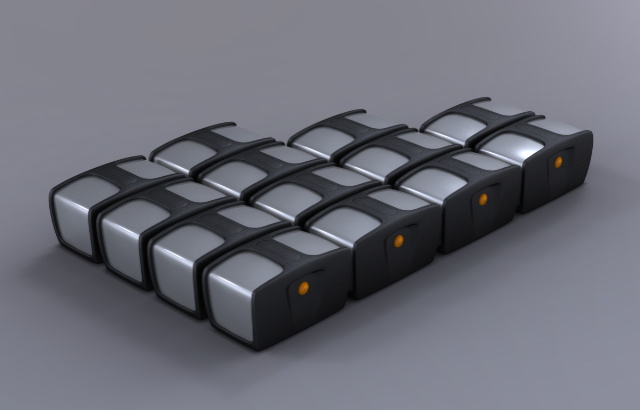
Corvus Energy Company says its transforming renewable-energy, transportation, and marine industries with its release of an advanced lithium-ion battery that can store and distribute energy in megawatt sizes and has the capacity to output sustained power comparable to diesel engines in hybrid and full-electric vessels and vehicles.
Current hybrid designs in the marine industry, being installed with batteries, will cut CO2 emissions and fuel consumption in heavy-polluting workboats by 75%. Proprietary lithium-ion battery packs from Corvus Energy, Richmond, B.C. have four times the power and energy storage of lead-acid batteries in half the volume and a quarter of the weight. Each battery pack delivers at least 22% more power and energy density than the most powerful Lithium-ion phosphate batteries used in electric vehicles and consumer products. The battery design is built around a new nickel-manganese-cobalt (NMC)-based cell and patent-pending Corvus battery management system that enhances battery efficiency and performance with energy storage capacity from 6.2 kWh to unlimited sizes.
“We’ve made the theoretical…possible,” says Corvus CEO Brent Perry. “Our battery’s cells are 99% efficient, a full 10 to 30% better than any other brand and it’s available today.” Company founders George Roddan, a naval architect, and Neil Simmonds, who holds more than 70 patents in battery management systems, joined forces with Perry in 2009 to create a battery pack that could provide diesel-engine-scale power and solve the marine and transportation industries’ energy problems.
Corvus says it invested more than $5 million to create a safe, modular battery pack tough enough to withstand the world’s harshest ocean and port environments, as well as operational between -4 and 140°F. In addition, each pack has an average life of twenty years. Lead-acid batteries last just seven years.
“Corvus is letting engineers, who design wind farms and grid systems to cruise ships and tug boats, rethink how they can store energy and use power,” said Perry. “It changes the entire landscape. Energy can be stored in regions that previously didn’t have consistent power and ports can clean up their act with workboats and equipment that no longer require diesel engines.
Russ Kremer of Heritage Acre Foods recently selected the batteries as primary energy storage for his 100% eco-powered, zero-waste pork-processing plant near Springville, Mo. Kremer selected Corvus Energy’s 400 to 500-kWh battery pack to store energy captured by wind and solar generators and disperse it as needed.
Long-haul trucks idle an average of 2,000 h/yr, consuming 1 gal/h. Auxiliary power units with Corvus batteries let trucks reduce fuel consumption by 2,000 gallons annually and eliminate, on a per vehicle basis, some 19 metric tons of carbon dioxide, 705 pounds of nitrogen oxide, 143 pounds of reactive organic gas and 9.5 pounds of particulate matter.
Tugboats idle up to 90% of the time and operate at full power the remaining 10%. With Corvus, a 3,000-horsepower harbor tug in hybrid form will save 122,000 gallons of fuel and will reduce its emissions by 900 tons of carbon, 21 tons of nitrogen oxide, and 8.62 tons of particulate matter each year. Tugboats can draw extra energy from the battery packs during full-power surges, fully rely on the pack during idle periods, and power critical navigational instruments for hours. The packs are the most efficient in the industry and recharge in 30 min. It’s maintenance-free and that comes with a lifetime warranty.



